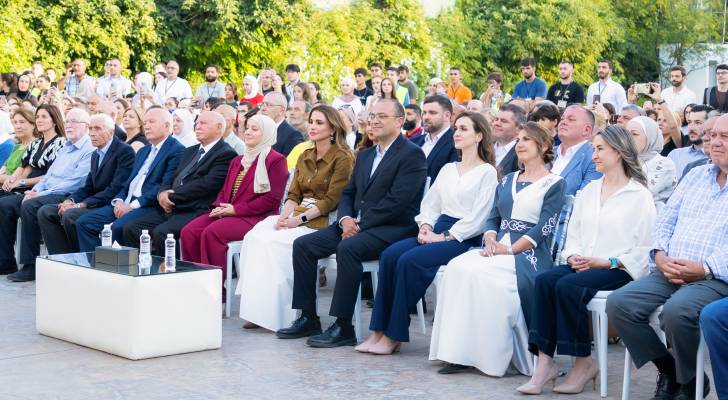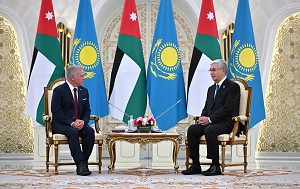Jordan, Syria reactivate cooperation on Yarmouk River Basin — official
The Jordan Times
AMMAN — Secretary-General of the Jordan Valley Authority Hisham Haisa on Monday said that there are understandings with Syria regarding the management of water resources in the Yarmouk River Basin, in contrast to the practices of the previous regime, according to Al Mamlaka TV.
During a meeting of the Lower House Agriculture and Water Committee, Haisa said that recent meetings have reactivated the joint technical committee for the Yarmouk Basin, and reviewed random depletion in a number of dams and illegal wells in the basin.
He added that these efforts resulted in a Syrian government decision and decree to halt illegal wells.
Haisa noted that Jordan had presented a comprehensive study of the Yarmouk Basin, covering both the Jordanian and Syrian sides, with the aim of achieving a fair water-sharing arrangement between the two countries.
He also expressed hope for good rainfall seasons in the region, which he described as “promising”, referring to an agreement with Syria to use cloud seeding as a measure to enhance water resources.
Haisa also referred to a plan to train Syrian engineers in the management of dams and water basins, including electronic control and more efficient water distribution.
He said that these steps represent a new beginning in water cooperation between Jordan and Syria and reflect both sides’ commitment to protecting water resources and ensuring sustainability.
Ministry of Water and Irrigation Spokesperson Omar Salameh told The Jordan Times in July that Jordan and Syria had agreed to share water resources equitably following technical-level discussions that concluded with a signed protocol at the Wihdeh Dam.
Salameh said that the joint Jordanian-Syrian technical water committee convened at the Wihdeh Dam, where both sides reaffirmed their commitment to fair water distribution from the Yarmouk River Basin, adding that the agreement aims to safeguard the rights of both countries and improve regional cooperation on water management.
Jordan and Syria signed the 1953 Joint Arab Agreement for managing the Yarmouk River Basin with Syria (amended in 1987).
In a previous interview with The Jordan Times, former water minister Hazim El Naser said that Syria had constructed 49 dams, nearly double the number permitted under the 1987 amendment, significantly reducing the flow of water to Jordan.
“The previous regime ignored the agreement,” El Naser said. “This has caused an annual loss of 180 to 200 million cubic metres of water for Jordan — nearly equivalent to the full capacity of the National Water Carrier Project.”
According to the United Nations Treaty Series, Jordan and Syria initially signed a joint agreement in 1953 to manage the Yarmouk River Basin, aiming to promote cooperation and irrigation development.
The agreement was amended in 1987 to include detailed provisions for the construction and operation of the the Wihdeh Dam.
Excessive groundwater extraction on Syria’s side has further worsened the crisis, drying up more than 12,000 wells and causing an annual loss of 180 to 200 million cubic meters of water for Jordan, El Naser added.




